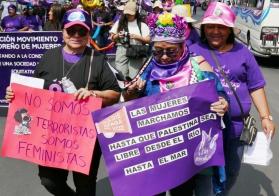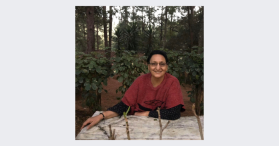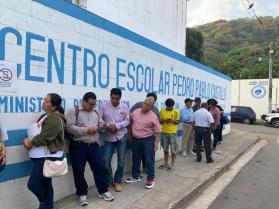Reflections on the Northwest Latin American Solidarity Conference
By Ana Lottis, Seattle CISPES
We gathered between April 9 and 11at The Evergreen State College in Olympia, Washington: Over seventy of us,representing twenty-four organizations, with seven hundred years of combinedexperience as organizers and activists. We came from several Northwest cities –Portland, Olympia, Tacoma, Seattle, Bellingham, and Vancouver, B.C. – and werejoined by companions from as far away as San Francisco, Denver and Washington,D.C. We came to deepen our knowledge of, discuss, and plan actions aroundissues ranging from the Honduran coup to Venezuelan social movements to theNorthwest Detention Center for immigrants to, of course, mining disputes in ElSalvador. And we came to get to know each other, to learn more about eachindividual’s and organization’s focus so that we might better coordinate ourefforts as a whole. Our experience was informative, stimulating and, best ofall, incredibly fun.
We spent our first two days attending informational anddiscussion-based workshops, connecting with old friends, meeting new ones, andinformally strategizing possible action plans. Each day had a keynote speaker,with Jesse Freeston, a journalist from The Real News Network, going first. Hedescribed his work covering the post-coup elections in Honduras, where hediscovered just how at odds official U.S. portrayals of the results were withthe evidence of massive fraud in plain sight. Saturday’s keynote was up toCarlos Martínez, who came from San Francisco’s Center for Political Education.Carlos spoke about the vibrant grassroots organizing currently occurring inVenezuela; activity which is often overshadowed overseas by the perception thatChávez is solely responsible for most of the country’s political activity.Sunday’s main event was a public event featuring Father Roy Burgeois, founderof the School of the Americas Watch.
In between the keynote speakers, we chose from a number ofworkshops on topics including ALBA; the anti-war movement’s responsibilitytowards Latin America; human rights accompaniment in Guatemala; movements forindependence and labor rights in Puerto Rico; and Colombia’s internaldisplacement crisis. The weekend wouldn’t have been complete without the opportunityto let our hair down – or arrange it in a creative drag updo – at a Quinceañero dance sponsored by TheEvergreen State College’s chapter of MEChA.
Sunday morning was reserved for six simultaneous strategysessions for different campaigns. This was CISPES’ chance to get together with representatives of otherorganizations across the Northwest to discuss and plan for collaboration onanti-mining efforts, especially the May 27th National Day of Actionagainst Pacific Rim Mining. We threw around a lot of creative, artistic andborderline insane ideas for how to make all of these campaigns work, and agreedto continue the joint planning with conference calls and follow-up networking.
Perhaps what struck me most about the conference was thecommon thread throughout that spoke to the heart of our purpose as solidarityactivists. No matter what we discussed, from mining resistance in Cabañas tocommunity radio in Venezuela, we focused not on the power we could give tothose with whom we are in solidarity, but on the power they themselvesdemonstrate time and time again.
An issue often affecting international activism is the notionthat the oppressed need some form of contact with outsiders to jump-start theprocess of liberation. Solidarity work, however, fundamentally recognizes thepower of the oppressed, in both the past and present, to effect their ownliberation. Solidarity activists work to provide resources for existingliberation struggles, but we also combat the ignorance in our home country thatenables oppression - the ignorance which Father Burgeois called the greatestenemy of justice. To paraphrase one colleague who spoke this weekend, byplacing our struggles within a historical and geopolitical framework, andrefusing to fall into the traps of well-meaning but patriarchal activism thatseeks to save those in the global periphery, we instead place the periphery atthe center of our work and challenge the structures that have marginalized itfor centuries.

 "I am a CISPES supporter because continuing to fight for social justice and a more people-centered country means continuing the dream and sacrifice of thousands of my fellow Salvadorans who died for that vision.” - Padre Carlos, New York City
"I am a CISPES supporter because continuing to fight for social justice and a more people-centered country means continuing the dream and sacrifice of thousands of my fellow Salvadorans who died for that vision.” - Padre Carlos, New York City

